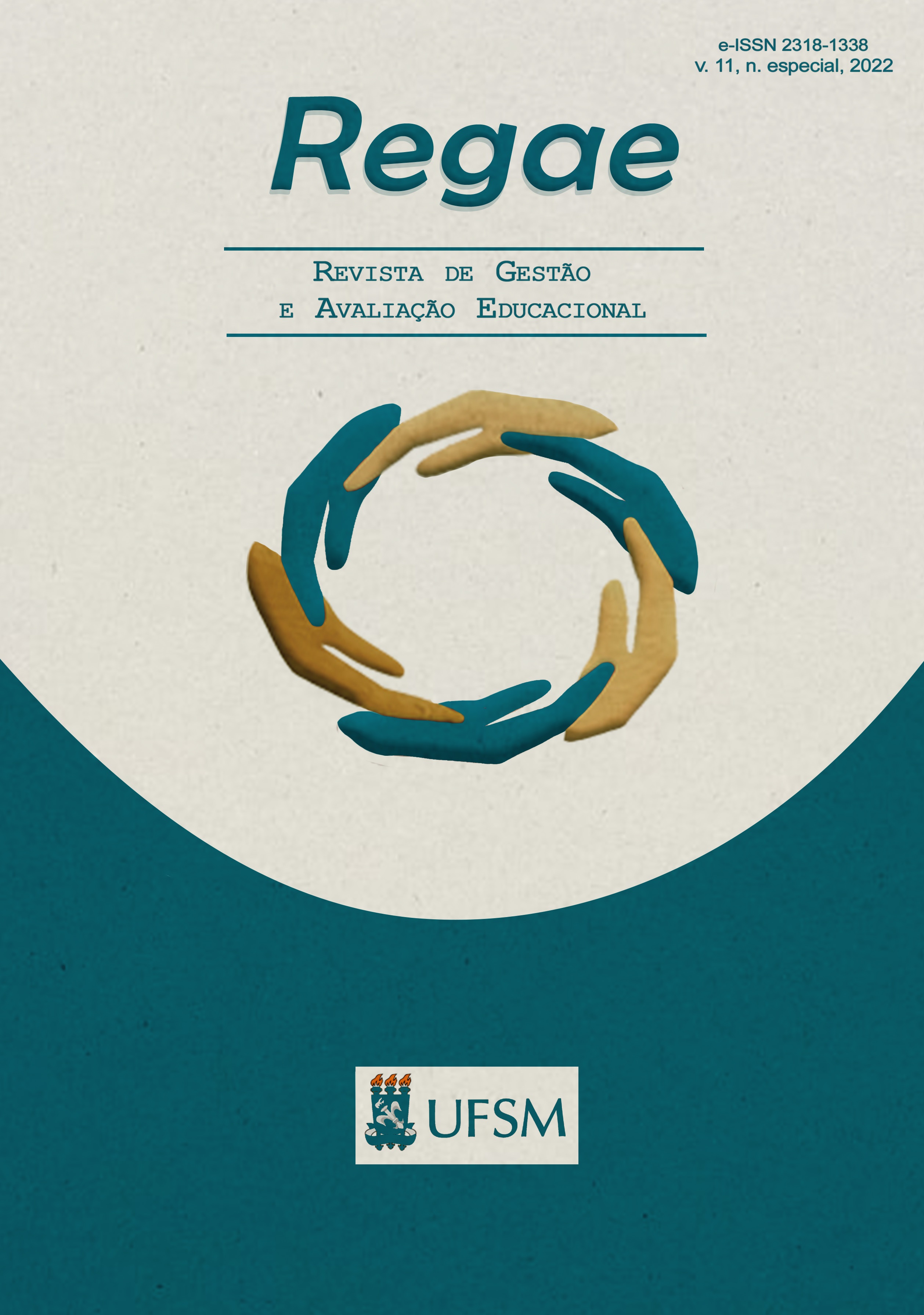Integração multidisciplinar discente e docente ao Comitê de Ética em Pesquisa da Universidade de Santa Cruz do Sul: vivências e contribuições à formação continuada
DOI:
https://doi.org/10.5902/2318133872048Palavras-chave:
Comitês de ética em pesquisa, ensino, comunicação interdisciplinar, pesquisaResumo
A partir da atuação conjunta de seres humanos em prol de objetivos em comum, emergem situações de potência ao aprendizado e, nesse viés, discente e docentes que atuam num mesmo colegiado juntos a um Comitê de Ética em Pesquisa - CEP - constroem pontes que estimulam a multidisciplinaridade e horizontes da ética na pesquisa. Como objetivo: potencializar reflexões a partir da integração multidisciplinar discente e docente a um CEP, considerando vivências e contribuições para formação continuada. A partir desse contexto puderam ser notados duas vertentes aos nortes do estudo, os quais evidenciam-se fragilidades pela alta rotatividade de integrantes e baixo conhecimento por parte da comunidade científica acerca dos reais trabalhos do CEP, quais sejam: educativo; consultivo e deliberativo. Por sua vez, os pontos potenciais quanto a participação se articulam acerca da atinência e formação crítica sob os vieses de pesquisa no que tangem a ética e as compreensões singulares e multidisciplinares sob um foco central. Desse modo, compreende-se que, a partir de uma atuação conjunta, modelos ampliados e formativos se alicerçam e permitem que se comuniquem com as necessidades singulares, multidisciplinares e plurais de cada pesquisa e seres humanos, sensíveis aos olhares dos pareceristas.
Downloads
Referências
ALVES, Daniela Alves de; TEIXEIRA, Wanessa Milagres. Ethics in social sciences researches: regulation, scientific practices and controversies. Revista Educação e Pesquisa, São Paulo, v. 46, n. 5, 2020, p. 1-21.
BARATA, Ronisete Souza; ANJOS, Karla Ferraz dos; BARBOSA, Ana Angélica Leal; BARBOSA, Adriana Silva; SANTANA, Kleverton Bacelar; ROSA, Darci de Oliveira Santana. Moral and/or ethical issues in research ethics committees. Revista Bioética, Brasília, v. 30, n. 1, 2022, 139-148.
BRASIL. Lei n. 13.709, de 14 de agosto de 2018: dispõe sobre a Lei Geral de Proteção de Dados Pessoais (LGPD). Disponível em: http://www.planalto.gov.br/ccivil_03/_ato2015-2018/2018/lei/l13709.htm. Acesso em: 2 out. 2022.
BRASIL. Resolução n. 510, de 07 de abril de 2016. Disponível em: http://conselho.saude.gov.br/resolucoes/2016/Reso510.pdf. Acesso em: 1 out. 2022.
BRASIL. Resolução n. 466, de 12 de dezembro de 2012: dispõe sobre pesquisas em seres humanos e atualiza a resolução 196. Conselho Nacional de Saúde. Brasília, jun. 2013. Disponível em: <https://conselho.saude.gov.br/resolucoes/2012/Reso466.pdf>. Acesso em: 28 jun. 2021.
CAVALCANTI, Felipe de Oliveira Lopes; GUIZARDI, Francini Lube. Educação continuada ou permanente em saúde? Análise da produção pan-americana da saúde. Revista Trabalho Educação e Saúde, Rio de Janeiro, v. 16, n. 1, 2018, p. 99-122.
COLLARES, Cecília Azevedo Lima; MOYSÉS, Maria Aparecida Affonso; GERALDI, João Wanderley. Educação continuada: a política da descontinuidade. Revista Educação & Sociedade, [s.l.], v. 20, n. 68, 1988, p. 202-219.
FONSECA, Isabela; FERNANDES, Alba; RODRIGUES, Simone. O papel do comitê de ética em pesquisa em uma instituição de ensino superior. Revista da Faculdade de Medicina de Teresópolis, Teresópolis, v. 4, n. 1, 2020, p. 51-59.
LIMA, Dartel Ferrari; LIMA, Lohran Anguera. Perspectives of research ethics: the rethinking for the future of the brazilian standardizer system. Cadernos Unifoa, Volta Redonda, v. 45, n. 45, 2021, p. 89-95.
LIMA, Dartel Ferrari; LIMA, Lohran Anguera; MALACARNE, Vilmar; CHISTOFOLETTI, João Fernando. Ética em pesquisa e responsabilidades sociais dos pesquisadores: uma perspectiva do CEP Unioeste. Varia Scientia - Ciências da Saúde, [s.l.], v. 6, n. 1, 2020, p. 56-62.
UNISC. Comitê de ética em pesquisa da Universidade de Santa Cruz do Sul. Disponível em: https://www.unisc.br/pt/pesquisa/comite-de-etica/apresentacao. Acesso em: 1 out. 2022.
Downloads
Publicado
Como Citar
Edição
Seção
Licença
Autores mantém os direitos autorais e concedem à revista o direito de primeira publicação, com o trabalho simultaneamente licenciado sob a Licença Creative Commons Attribution 4.0 Internacional Reconocimento não comercial sem obra derivada, que permite o compartilhamento do trabalho com reconhecimento da autoria e publicação inicial nesta revista.
Autores têm autorização para assumir contratos adicionais separadamente, para distribuição não-exclusiva da versão do trabalho publicada nesta revista. Exemplo: publicar em repositório institucional ou como capítulo de livro, com reconhecimento de autoria e publicação inicial nesta revista.
Autores têm permissão e são estimulados a publicar e distribuir seu trabalho online. Exemplo: em repositórios institucionais ou na sua página pessoal - a qualquer ponto antes ou durante o processo editorial, já que isso pode gerar alterações produtivas, bem como aumentar o impacto e a citação do trabalho publicado.
Política de privacidade
Os nomes e endereços informados nesta revista serão usados exclusivamente para os serviços prestados por esta publicação, não sendo disponibilizados para outras finalidades ou a terceiros.






